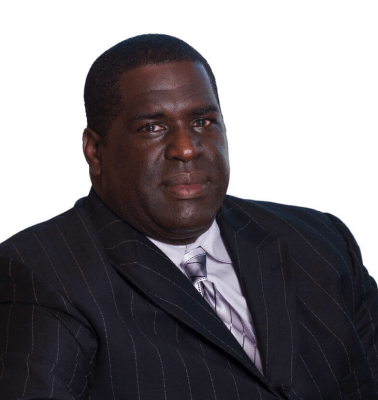San Jose Spousal Abuse Legal Framework
Spousal abuse, unfortunately, is a prevalent issue in San Jose and throughout California. Being familiar with the state's legal stance on the matter is vital for both victims and alleged perpetrators. California has strict laws and provisions related to spousal and domestic abuse designed to protect victims and ensure justice. Simultaneously, knowing these laws is essential for those wrongly accused to protect their rights.
California Laws on Spousal Abuse
In California, spousal abuse is taken with the utmost severity. The state's laws encompass a broad range of actions, considering both physical violence and psychological harm. This means that even non-physical forms of abuse, such as emotional torment, can lead to serious legal repercussions. Furthermore, threats can result in charges and potential penalties even if not acted upon.
Beyond the immediate legal consequences, those convicted face long-term repercussions. A record of spousal abuse can affect employment opportunities, personal relationships, and societal perceptions. In certain situations, repeat offenders may face escalated charges and increased penalties. As such, it's essential to be aware of these implications and approach any allegations with seriousness.
California domestic violence law can be confusing, but our domestic violence defense attorney is here to help you.
Restraining Orders and Protective Orders
Victims of abuse, fearing further harm, often turn to the legal system for protective measures. Restraining orders serve this purpose, ensuring that they have a legal shield against potential threats. In California, these orders prohibit the accused from contacting or even nearing the protected individual. It is a tool that aims to provide immediate relief to those facing criminal threats.
However, restraining orders are not just pieces of paper; they carry significant legal weight. If an individual violates the conditions set by the order, they risk facing criminal charges. These can include hefty fines and even jail time, depending on the severity of the violation. Therefore, both the protected party and the accused must understand the terms and implications of these orders.
Criminal Charges and Penalties
Facing allegations of spousal abuse brings about the possibility of severe legal consequences. In California, depending on the details and evidence of the case, charges can range from misdemeanors to felonies. Penalties might include jail time, large fines, or mandatory participation in counseling programs. The weight of these charges underscores the importance of due legal processes and solid defense strategies.
Moreover, a criminal conviction extends beyond immediate penalties. It leaves a mark on an individual's record, impacting their standing in society. The possibility of reduced employment opportunities, difficulties in housing applications, and strained personal relationships loom large. Navigating the aftermath requires resilience and, often, legal guidance.
Civil Remedies and Family Law
In addition to criminal penalties, spousal abuse has repercussions in civil law. Victims can pursue compensation for damages they've suffered due to the abuse. This could cover medical expenses, psychological therapy, and even compensation for emotional distress. In more severe cases, punitive damages might be awarded as a deterrent against future misconduct.
Furthermore, allegations and instances of abuse play a pivotal role in family court. In divorce proceedings, evidence of abuse can influence decisions about alimony, property division, and more. Similarly, in child custody battles, a history of abuse can be a determining factor in judgments. The intertwined nature of criminal and civil outcomes emphasizes the need for comprehensive legal representation.
Different Forms of Spousal Abuse
 Spousal abuse manifests in various ways, some overt and others more subtle. Recognizing and understanding these forms can empower victims to seek help. It's also crucial for those accused to differentiate between the types of allegations they might face. From physical violence to psychological torment, spousal abuse covers a wide spectrum.
Spousal abuse manifests in various ways, some overt and others more subtle. Recognizing and understanding these forms can empower victims to seek help. It's also crucial for those accused to differentiate between the types of allegations they might face. From physical violence to psychological torment, spousal abuse covers a wide spectrum.
 Dealing with spousal abuse can be an emotionally traumatic experience. Knowing your rights and securing legal representation can make a world of difference. At Summit Defense, we're committed to supporting and guiding you through every step of the process. Our seasoned attorneys understand the intricacies of spousal abuse cases in San Jose and are here to help.
Dealing with spousal abuse can be an emotionally traumatic experience. Knowing your rights and securing legal representation can make a world of difference. At Summit Defense, we're committed to supporting and guiding you through every step of the process. Our seasoned attorneys understand the intricacies of spousal abuse cases in San Jose and are here to help.

 Understanding the legal implications of spousal abuse can be complex. With
Understanding the legal implications of spousal abuse can be complex. With  Spousal abuse manifests in various ways, some overt and others more subtle. Recognizing and understanding these forms can empower victims to seek help. It's also crucial for those accused to differentiate between the types of allegations they might face. From physical violence to psychological torment, spousal abuse covers a wide spectrum.
Spousal abuse manifests in various ways, some overt and others more subtle. Recognizing and understanding these forms can empower victims to seek help. It's also crucial for those accused to differentiate between the types of allegations they might face. From physical violence to psychological torment, spousal abuse covers a wide spectrum. Psychological abuse blends elements of emotional abuse but often adds layers of threats, isolation, or manipulation. Tactics such as gaslighting—where the abuser makes the victim question their memory, perception, or sanity—can be mentally destabilizing. Moreover, isolating victims from friends, family, or support systems ensures that they lack outside perspectives, making them more susceptible to the abuser's narrative.
Psychological abuse blends elements of emotional abuse but often adds layers of threats, isolation, or manipulation. Tactics such as gaslighting—where the abuser makes the victim question their memory, perception, or sanity—can be mentally destabilizing. Moreover, isolating victims from friends, family, or support systems ensures that they lack outside perspectives, making them more susceptible to the abuser's narrative. Being accused of spousal abuse can be life-altering. However, it's possible to challenge these accusations with the right defense strategy. Some common defenses include establishing an alibi, demonstrating a lack of evidence, or proving that the alleged incident was consensual. Engaging an experienced attorney can help explore the best defense options.
Being accused of spousal abuse can be life-altering. However, it's possible to challenge these accusations with the right defense strategy. Some common defenses include establishing an alibi, demonstrating a lack of evidence, or proving that the alleged incident was consensual. Engaging an experienced attorney can help explore the best defense options. At Summit Defense, we understand the gravity of spousal abuse cases. Our team offers comprehensive support, from legal counsel to emotional backing, ensuring your voice is heard. Whether you're a victim seeking justice or someone wrongfully accused, we're here to guide you. Count on our expertise to help you through San Jose's legal landscape.
At Summit Defense, we understand the gravity of spousal abuse cases. Our team offers comprehensive support, from legal counsel to emotional backing, ensuring your voice is heard. Whether you're a victim seeking justice or someone wrongfully accused, we're here to guide you. Count on our expertise to help you through San Jose's legal landscape. 









